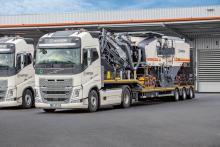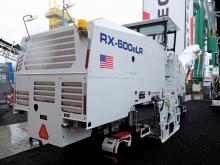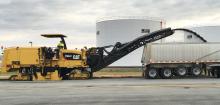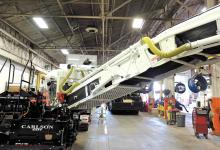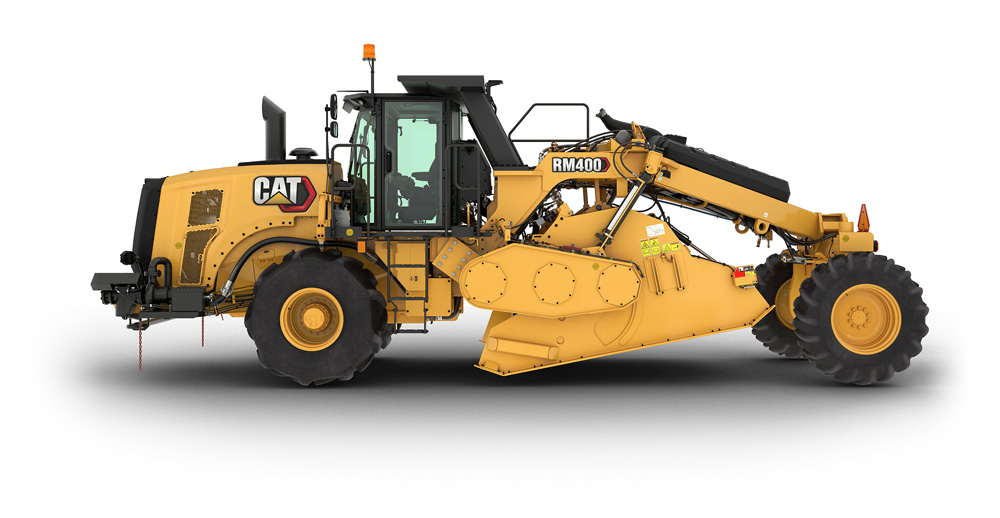
A series of updates have been introduced for the PM620, PM622, PM820, PM822 and PM825 half-lane cold planers. The PM620 and PM622 are powered by the proven Cat C18, delivering 470kW, while the larger PM820, PM822 and PM825 are powered by a C18 engine with a twin-turbo delivering 597kW. The engines meet the Tier 4 Final/Stage V emissions requirements.
One of the key upgrades is the improved LED lighting for night working. The wide-dispersion LED work lights are fitted as standard, while LED perimeter lights can also be added.
Milling performance is said to be optimised due to the integrated Cat GRADE with Grade and Slope system. This system includes automated features such as obstacle jump and programmable cut transitions. The machines can also be fitted with full 3D milling capabilities.
The new RM400 Rotary Mixer replaces the firms RM300 Rotary Mixer. Its redesigned drive system means that the new machine is actually 440mm shorter than its predecessor and combined with its steering modes, this allows for improved manoeuvrability. The machine delivers a 2.4m cutting width, weighs in at 23.5tonnes and offers better performance both for full-depth reclamation and soil stabilisation applications.
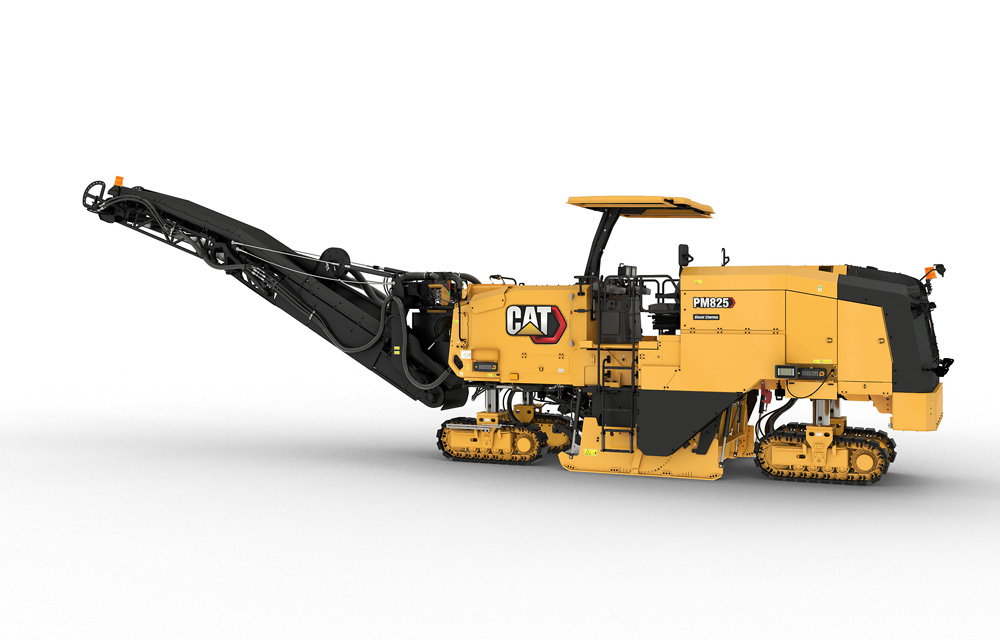
The machine is powered by a Cat C9.3 engine delivering 311kW, which meets Tier 4 Final/Stage V emissions standards. All-wheel drive is provided by the four independent drive pumps, delivering high torque, traction and speed.
The sliding cab optimises the viewing to the tyre edges and rotor cut lines for the operator. Front and rear facing cameras are fitted as standard and are viewed through a display in the cab. Optional side mounted cameras are available for better sight lines along the machine and extra safety. In addition, cameras can be mounted in front and behind the rotor chamber.
Three different rotor speeds are fitted and an electronic controller keeps the rotor at the proper depth and the machine at a consistent speed. The RM400 can be equipped with a water spray system as well as an emulsion system for when additives are needed.
Four rotor options are available for a variety of applications: a universal rotor; soil rotor; combination rotor; and spade rotor. These allow the user to operate the machine in a wider array of applications.

